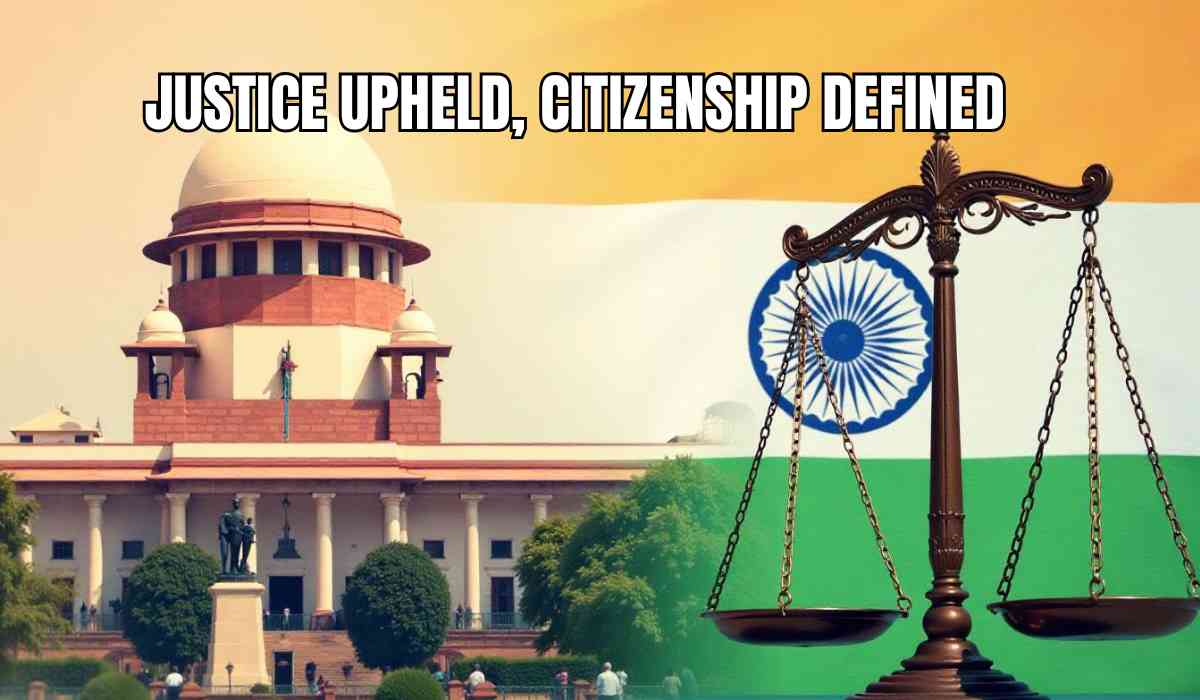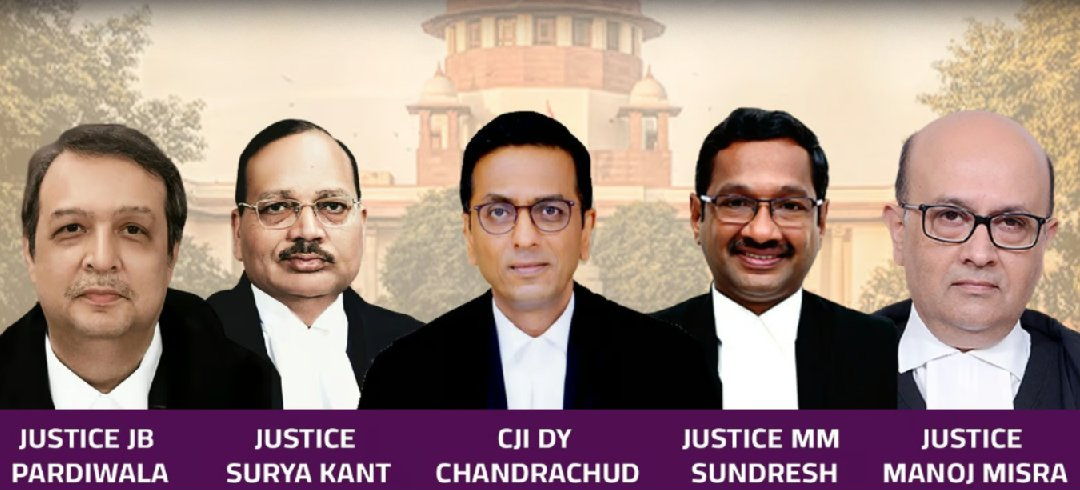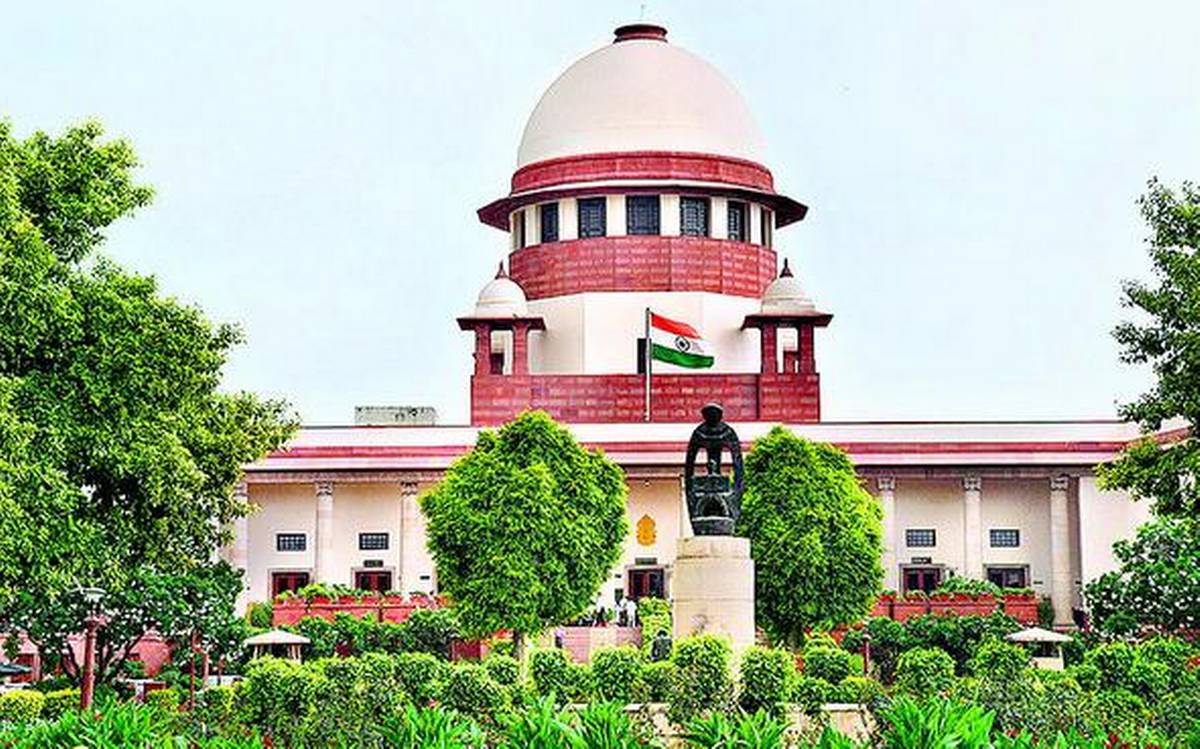Image Source - Law Chakra
Supreme Court Affirms Section 6A of Citizenship Act
India's Supreme Court, led by Chief Justice D.Y. Chandrachud, handed out an historic judgment on October 17, 2024, upholding, 4:1, the constitutionality of Section 6A of the Citizenship Act, 1955. It was originally inserted as part of the Assam Accord in 1985. In a dissenting opinion, Justice JB Pardiwala held that though Section 6A was well-intentioned at the time of its making, it has become unconstitutional. His decision argued for its prospective invalidation; the majority disagreed with him.
What is Section 6A?
Section 6A is an exception incorporated into the Citizenship Act post the Assam Accord between the government of India, and the leaders of the Assam Movement. This section was made with the intention of dealing with the problem of influx, particularly of Bangladeshi migrants who came in after the 1971 Indo-Pakistan war. In this section, it has been defined that-
Persons who had entered Assam on or before the appointed day, being residents here since before January 1, 1966, shall be considered to be citizen of India. In addition, those who arrived between 1 January 1966 and 25 March 1971, also qualify as citizens, but with a caveat: they are disenfranchised for 10 years.
Arguments for the Petitioners
The petitioners objected to why Assam alone had section 6A imposed upon it. They claimed that the rise in illegal immigration was partly due to that provision. On this, the other side argued that the section was aimed at saving Assamese culture and preventing a drift from civic to cultural nationalism, which would demolish the values of the Constitution.
Majority Judgment: Why Section 6A Stands
There was also a cut-off date of March 25, 1971, which ruled in its favour, with citizenship to be conferred by Chief Justice Chandrachud. They concluded that:
- The section did not impinge upon Section 6 of the Citizenship Act.
- The cut-off date of March 25, 1971, was fair.
- It was necessary to have it in place to balance immigration and protect Assamese culture.
Justice Surya Kant highlighted that this very provision promotes the spirit of fraternity, pressing the fact that different ethnic groups can stay together without violating each other's rights.
- Dissenting Opinion: Section 6A is Unconstitutional with Time
- Justice JB Pardiwala dissented, holding that though Section 6A was very apt when it was enacted in the colonial era, it had become unconstitutional with the passage of time.
He said it cannot satisfy the needs of the country at the present moment and therefore needs to be declared unconstitutional.
Effect on Assam's NRC Process
This judgment is bound to have the inevitable trickle-down effect on the ongoing process of NRC in Assam. The court's decision has finally crystallized the legal position about inclusion of immigrants into NRC, while the decision casts an uncertain shadow on future citizenship related cases in Assam.
NRC Stand of Assam Chief Minister
Earlier in 2024, Assam Chief Minister Himanta Biswa Sarma had stated he would quit if people who were not enlisted for the National Register of Citizens (NRC) were granted citizenship under the Citizenship (Amendment) Act or CAA. The CAA, enacted in 2019, fast-tracks citizenship for non-Muslim refugees from neighbouring countries.
Inputs by Agencies
Image Source: Multiple Agencies
Ⓒ Copyright 2024. All Rights Reserved Powered by Vygr Media.























